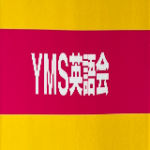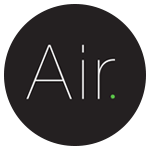
Getting a job anywhere can be difficult but it can be even more challenging to get a job in a foreign country and in a foreign language. To do well in the job hunting process you have to prepare properly and follow the Japanese style of job hunting, which is a little different from what you might be used to.
What if I’m not a new graduate?
Japan has a long tradition of hiring new graduates who, in times past, would be expected to dedicate most or even all of their working life to a company, and in return that company had very strict rules on firing to make sure employees were protected. This is changing in Japan and the “job for life” is looking like a thing of the past for younger generations.
These days more and more Japanese are changing jobs mid-career and companies are looking for talent beyond the annual hiring of new graduates in April every year. Year round recruiting for key positions has become the norm. As a foreigner in Japan you can take advantage of many skills gaps in both early and mid-career positions, especially if you can speak Japanese to a business fluent level (though often this is not required). There is a massive skills gap in Japan, especially in the tech sector, and many companies desperately scramble to hire coders and engineers from overseas to fill this gap. This could be you, but there are a few important things you need to know to have a chance at getting some of these positions. The first hurdle: your resume.
How is a Japanese Rirekisho different from a Resume?
Japanese have a very specific style of resume called a rirekisho 履歴書. It covers your education, experience, and certifications and has a specific format, along with some useful info for companies about how far you would be willing to commute and if you have children. It also includes a section for you to write a personal statement to sell yourself and introduce one of your good qualities. These can be VERY difficult to write for people who are not yet fully fluent.

Writing a rirekisho is not the same as just writing your resume. It’s much stricter!
For example, in most cases we do not put a date on our resume when applying for a position in Western countries, but in Japan there is usually a place for the date. This date should be the date you give the resume to the company, and it shows that it is up to date. A resume dated earlier, such as last month or last year is seen as rude, as if you didn’t care about this company enough to update your current experience level. Make sure you are consistent in using either the Western date system or Japanese throughout your rirekisho (2022 or 令和4, but not both) to demonstrate your attention to detail.
It used to be standard for companies to ask for a handwritten resume. That’s right, even now this is still expected for some traditional companies! A candidate’s handwriting was considered to be part of the screening process, but luckily these days resume written on a computer are the norm at most jobs. Just make sure you get a friend to check your spelling and details for mistakes, which are rarely forgiven in an official document like this.
How do I sell my talents with my free writing section?
You have to walk a fine line to sell your talents in Japan without hubris. You should focus on two main points:
1) A clear and specific reason for applying for this job
2) How your skills and experience would be an asset to the company at this job
This section of the rirekisho is sort of similar to a cover letter for most companies you would apply for in the West. The first priority is that you must be clear in your reason for applying. How does the company’s mission appeal to you and why would you want to choose this company over others. The person reading your application will be looking for someone who will fit well into the company culture, and someone who just wants to “make a good salary” and “have lots of holiday days” is not going to go to the top of the shortlist. Think about these questions:
- How did you learn about the company?
- What do you expect to achieve when working there (that will help the company make money and achieve its goals)?
- Does the description of the role fit well with things that motivate you to produce your best work (collaborative, travel to foreign countries, more responsibility for your work, creativity etc).
A good way to do this is to look over the job description and directly write your free writing section to answer the problems that the company is talking about. If they say “the position requires someone who has experience with PHP and mySQL”, mention these skills directly somewhere in your rirekisho or in the free writing section. If they say “open collaboration between teams is something we pride ourselves on” then mention that you work best in an environment where open collaboration between teams is a great way for your best and most productive work to happen. Don’t be afraid to almost copy the words and phrases they look for, it will demonstrate that you read and thought about the description and role of the job directly.
How do I pass the interview?
Here’s where your Japanese language ability really gets to shine. Using the appropriate keigo 敬語 (polite/humble Japanese) can be difficult even for native Japanese speakers, so being able to do this to even just a passable level is bound to impress a Japanese interviewer. To pull this off, the key is to practise many answers to standard interview questions ahead of time so that you can feel confident in the content and language you are using in at least part of the interview. Don’t wing it on the day, even Japanese people don’t do that because confident expressions are difficult to come up with under pressure. If you know Japanese professionals, get them to help you with interview practice and to correct your keigo grammar – Japanese people do this too so don’t feel embarrassed if your Japanese level doesn’t feel perfect. This is hard, it’s okay to practise a lot.
If you don’t have many Japanese friends who can help you with this, luckily there are free online seminars for learning about how to write resumes and do well in interview situations. These resume seminars cover key points about how to write an impressive resume that will pass screening, and show your strengths in order to get an interview.
Click HERE to see more information about the next seminar on July 21st, 2022!
This seminar will cover everything you need to know about writing a MUCH better Japanese resume so you can succeed in your search for a job in Japanese.
I hope this article has been useful for you and helps you with your application to work at a Japanese company.















